The Toyota 4-Runner is a popular SUV due to its versatility and reliability. However, it's a sure sign if yours is shuddering when you accelerate. Let's take a look at the possible causes and what you can do about them.
If your 4-Runner is shuddering when you accelerate, then pull over in a safe spot and check for visible problems. From there, cautiously drive to the nearest mechanic shop or call for a tow. This is an issue could be due to the following reasons:
- Unbalanced Tires
- Loose Lug Nuts
- Broken Motor Mounts
- Faulty CV Joints
- Failing Axels
- Bad Driveshaft
- Seized Brake Caliper
It's not easy to diagnose the root cause of the problem without proper tools and training. In this article, we will look at why your 4-Runner may be shuddering when you accelerate and the best course of action to take. In addition, we will answer other frequently asked questions about the Toyota 4-Runner, so read on!
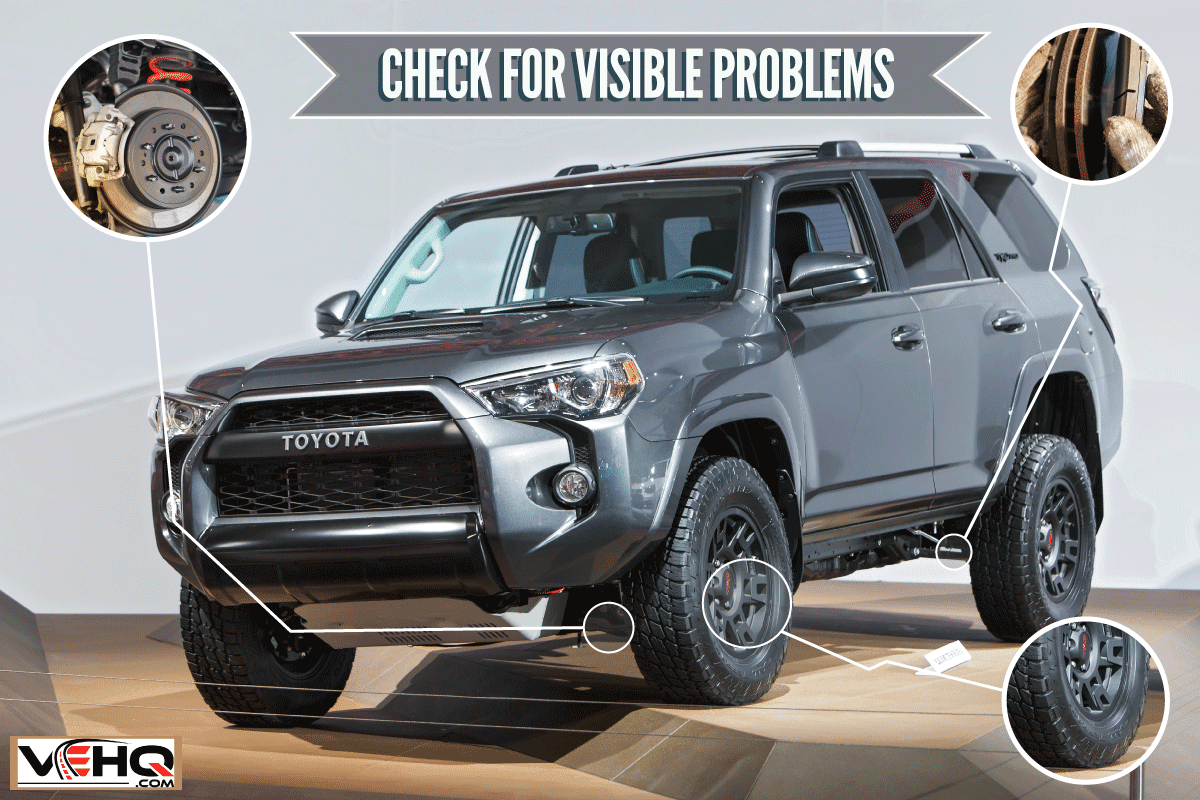
What to do when Toyota 4-Runner shudders when accelerating
A terror off-road and a smooth cruiser on the highway, the Toyota 4-Runner is a versatile SUV. Though it's a great car, mechanical parts can and will break down over time, like any vehicle.
As the 4-Runner ages, certain problems become more common. One such issue is when the car shudders when accelerating.
When your 4-Runner starts to shudder, it's essential to take action immediately and figure out what is causing the problem. The first course of action is to turn on your safety hazards and slowly pull over to the side of the road.
Once you are in a safe location, turn off your engine and check for any visible problems. If you can't see anything, it's time to call a tow truck or take your car to the nearest mechanic. Then, if you decide to drive, drive slowly and carefully to the nearest service station. When you get there, explain the problem to the mechanic and let them take a look.
As we mentioned earlier, it can be challenging to diagnose the cause of the problem without proper tools and training. The mechanic will likely have to do a thorough inspection of your car before they can give you an accurate diagnosis.
Nonetheless, let's take a look at the common culprits so you have a better idea of what might be causing the problem.

Unbalanced Tires
Did you recently have your tires rotated or new ones installed? If so, it's possible that they are not balanced correctly. The purpose of balancing tires is to ensure that they spin evenly.
If the tires are not balanced, they will cause the car to vibrate when accelerating. This is because the unbalanced weight of the tire makes it spin faster or slower than the other tires.
The solution is to have your tires balanced by a professional. You can usually have this done at the same place where you had your tires installed or rotated.
Loose Lug Nuts
If you have had work done on your car recently, it's possible that the lug nuts were not tightened properly. The lug nuts are responsible for holding the tires in place, but they can become loose if they aren't tightened properly.
A loose lug nut will cause the car to vibrate when accelerating because the tire will be able to move slightly. This is dangerous because it can cause the tire to come off while driving!
If possible, use your tire iron to tighten the lug nuts yourself. If you can't do this or if they are already tight, then it's time to call a tow truck or take your car to the nearest mechanic.
Broken Motor Mounts
Motor mounts are responsible for holding the engine in place. If they break, the engine will be able to move around, and this can cause the car to shake when accelerating.
This is tough to diagnose without a trained eye, but if you suspect that this is the problem, it's best to take your car to the nearest mechanic.
Faulty CV Joints
CV joints are located in the axle, and their purpose is to allow the wheels to turn while the car is moving. If they are damaged or worn out, they can cause the car to vibrate when accelerating. Take your car to the nearest mechanic if you suspect this may be the issue.
Failing Axels
The axel is responsible for connecting the wheels to the car. If it is damaged or worn out, it can cause the car to vibrate when accelerating.
If you have done any extreme off-roading recently, then you may have damaged your axels.
Bad Driveshaft
Same with the axels, a driveshaft can get damaged or bent if you have done any extreme off-roading. A driveshaft is responsible for connecting the engine to the wheels, and if it's damaged, it can cause the car to vibrate when accelerating.
Seized Brake Caliper
The brake caliper is responsible for holding the brake pads in place. If it seizes up, it can cause the car to shake when accelerating. This is because the caliper will grip the rotor tightly, and this will cause the vehicle to vibrate. You may also notice a burning smell coming from the brakes.
If you suspect that this is the problem, it's best to take your car to the nearest mechanic.
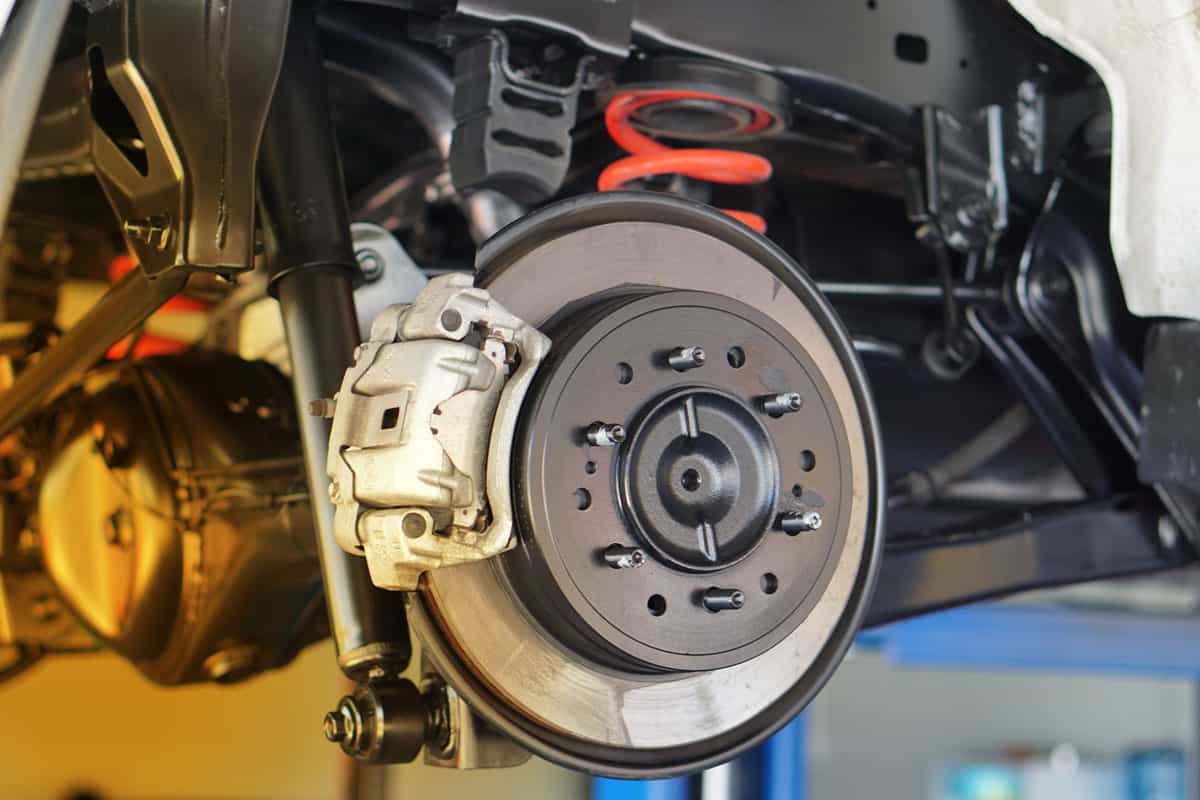
How often should you balance your tires?
Whether it's a 4-Runner or any other vehicle, it's important to keep an eye on your tires. They are the only part of the car that touches the ground, so they take a lot of abuse.
Most mechanics recommend that you have your tires balanced every 5000 miles or so. This can vary depending on the type of car you have and how you drive it. A good rule of thumb is to have them balanced when the tires are replaced or rotated. This will ensure that they are always in good condition.
When you take your vehicle in for an oil change, ask the mechanic to check the tire pressure and tread depth. These are two important factors in tire maintenance.
It's also a good idea to inspect your tires regularly for any signs of damage. If you see anything, have it checked out as soon as possible. When they are checking your tires, have them look at your brakes as well. Brake pads should be replaced every 10,000-20,000 miles or so, and it's a good idea to have the rotor checked for wear.
What causes brake calipers to stick?
A rusty caliper piston can cause the caliper to stick. Typically, this is due to a damaged piston boot. The piston boot is responsible for keeping water and dirt out of the caliper. If it gets damaged, it can allow water and dirt to get in, and this will cause the caliper to rust.
Another common cause of a sticking brake caliper is a seized-up bleeder valve. The bleeder valve is responsible for releasing air from the brake line. If it seizes up, it can cause the caliper to stick. If you suspect that this is the problem, it's best to take your car to the nearest mechanic.
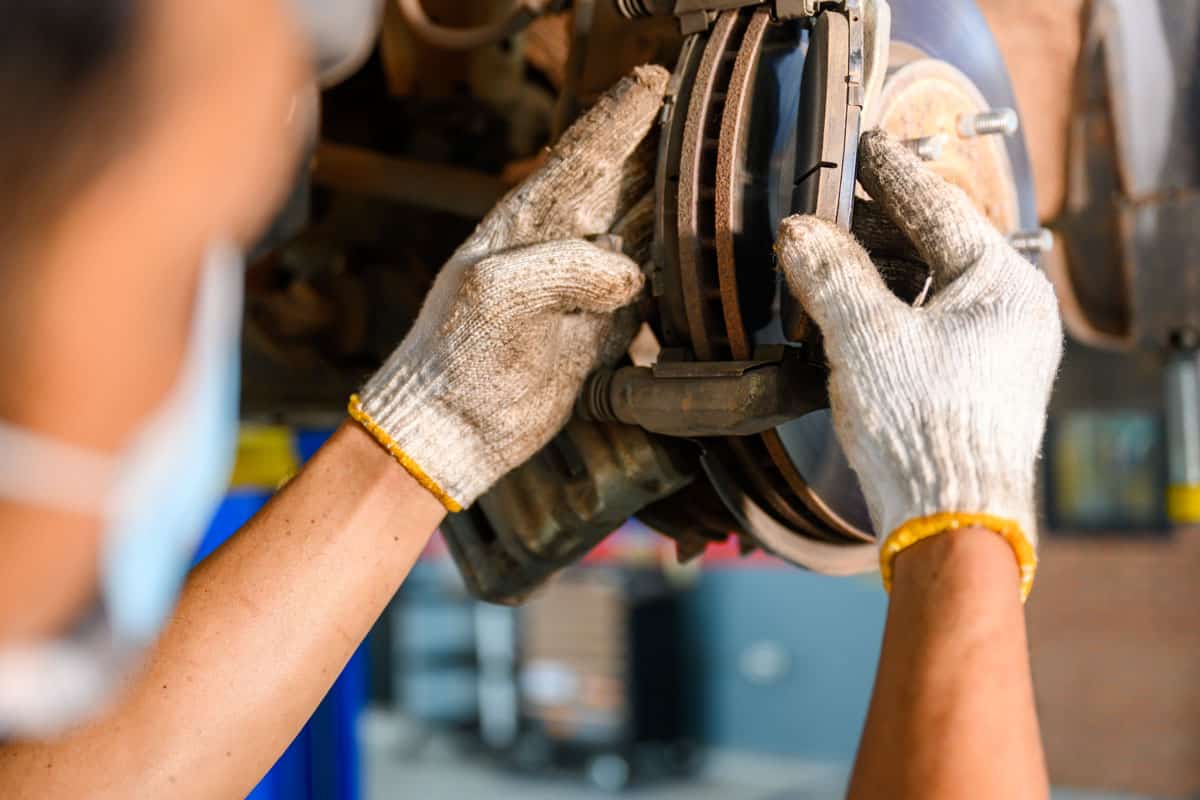
How much is a motor mount replacement on a Toyota 4-Runner?
Depending on the year of your 4-Runner, a motor mount replacement can cost anywhere from $400-$800. This is a pretty big range, so it's best to get an estimate from a mechanic before having the work done. Keep in mind that this is just for the labor cost and does not include the cost of parts.
A motor mount replacement is a pretty big job, and it's best to have it done by a professional. If you try to do it yourself, you could do more harm than good.
Are Toyota 4-Runners good vehicles?
There is no simple answer to this question as it depends on many factors. For example, the 4-Runner has an average reliability score of 4/5. However, some people may say that 4-Runners are great vehicles, while others may say they're not so great.
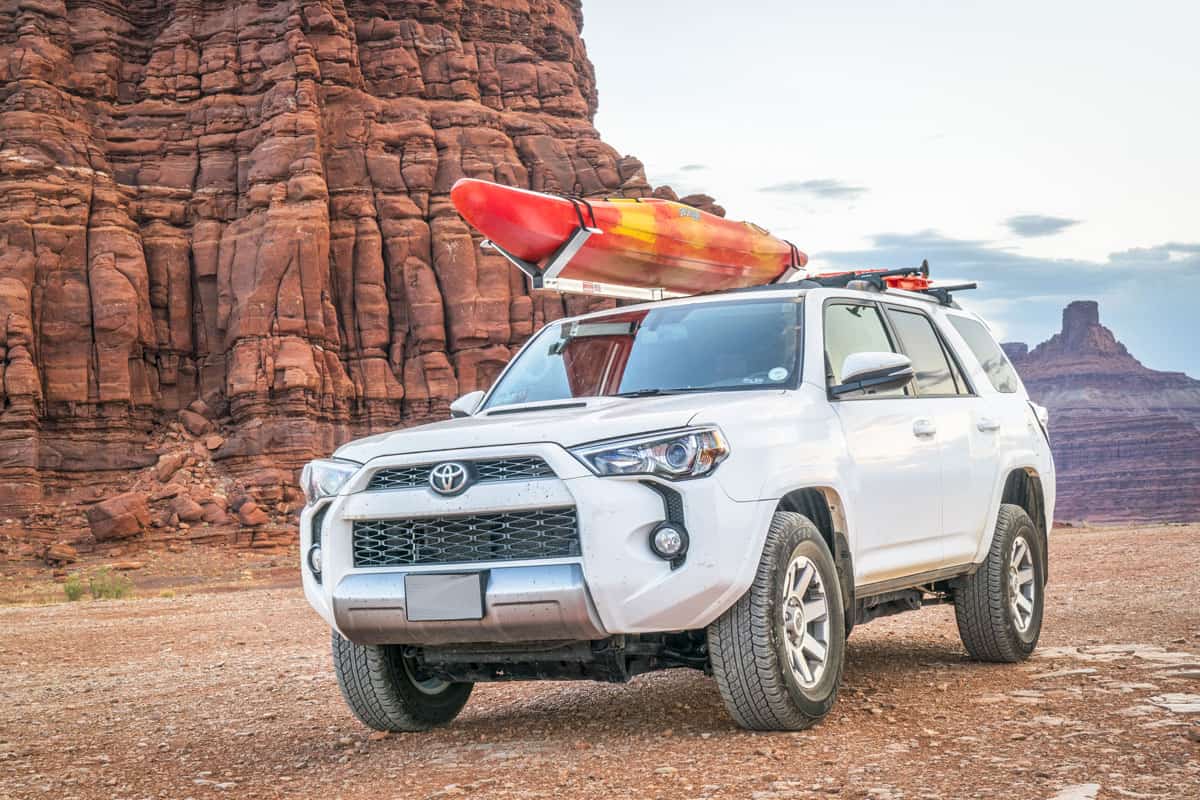
It depends on your specific needs and preferences. Some people may find that a 4-Runner is the perfect vehicle for them, while others may find it's not quite what they're looking for.
If you're considering purchasing a 4-Runner, it's essential to do your research and test drive the vehicle before deciding. This way, you can be sure that it's the right vehicle for you.
Final Thoughts
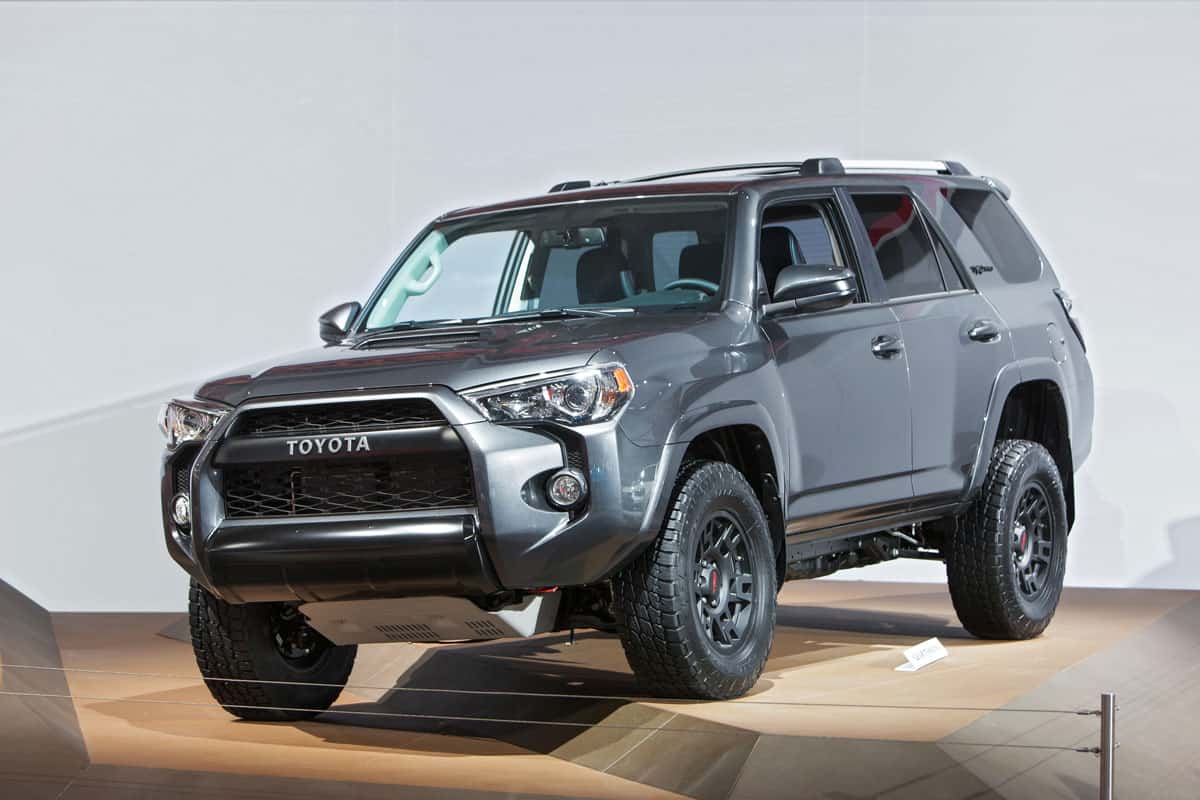
The Toyota 4-Runner is a popular SUV that has been on the market for many years. It's known for its reliability and off-road capabilities. But if yours is shuddering, making strange noises, or just not running as smoothly as possible, it may be time for some maintenance.
Made it to the end? Here are other articles you may find helpful:
Can A Toyota 4Runner Tow A Camper?
